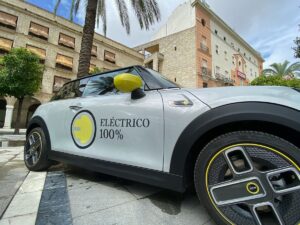
Home / EV Charging News / Electric Cars and the Circular Economy in Batteries
The world is witnessing a remarkable shift towards electric vehicles (EVs), and this transition goes beyond clean transportation. It extends to the sustainable practices associated with EV battery production and disposal. In this article, we’ll explore the concept of the circular economy within the realm of EV batteries, focusing on recycling, repurposing, and the broader principles of sustainability that are reshaping the EV industry.
The circular economy represents a departure from the traditional linear economic model. Instead of the “take, make, dispose” approach, the circular economy emphasizes resource efficiency and waste reduction. It centers on the idea of reusing and repurposing products and materials to create a closed-loop system that minimizes waste.
When applied to electric vehicle batteries, the circular economy concept promotes not only environmental sustainability but also the long-term viability of the EV industry.
A significant aspect of the circular economy in electric vehicle batteries is the use of sustainable practices in their production:
Recycling is a core component of the circular economy within the EV battery industry:
Repurposing EV batteries is another aspect of the circular economy:
The circular economy principles in electric vehicle battery technology are revolutionizing the way we produce, use, and dispose of EV batteries. Sustainable practices in production, recycling, and repurposing are reducing the environmental impact of the EV industry while simultaneously promoting resource efficiency.
As electric vehicles continue to gain prominence, the circular economy model ensures that the evolution is not only environmentally friendly but also economically and socially sustainable. It’s a comprehensive approach that doesn’t just power our vehicles but also drives us towards a greener and more responsible future.
$2,890.00 Original price was: $2,890.00.$2,690.00Current price is: $2,690.00.
$4,150.00 Original price was: $4,150.00.$3,790.00Current price is: $3,790.00.
$1,650.00 Original price was: $1,650.00.$1,490.00Current price is: $1,490.00.
$2,290.00 Original price was: $2,290.00.$2,150.00Current price is: $2,150.00.
$1,290.00 Original price was: $1,290.00.$799.00Current price is: $799.00.
$10,690.00 – $11,390.00




Your Power Management Partner for Over 25 Years Future Generations Depend on Our Decisions Today ™
2024 © All rights reserved by CyberSwitching